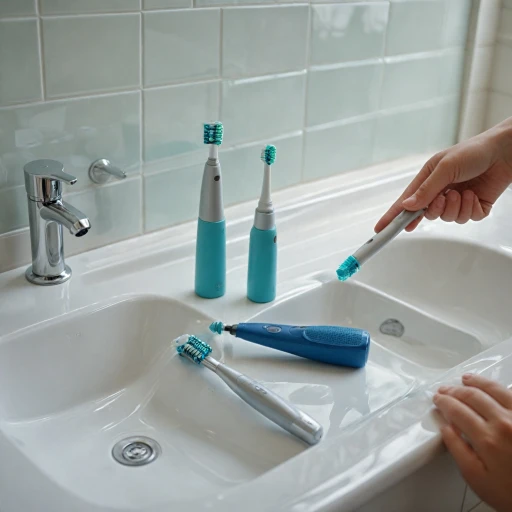Understanding FSA and Its Coverage
FSA: A Healthcare Financial Tool
Flexible Spending Accounts (FSAs) are instrumental in managing out-of-pocket medical expenses. These accounts, provided through employer-sponsored health insurance plans, allow employees to set aside a portion of their pre-tax earnings to cover specific health-related costs. An FSA is particularly appealing due to its potential to decrease overall taxable income while assisting with healthcare expenses.
What Do FSAs Cover?
Designed to support a range of health and dependent care expenses, FSAs often encompass costs stemming from both routine and unexpected medical needs. While traditional healthcare items, like prescription medications and doctor visits, are generally eligible for reimbursement, coverage for personal care items—such as electric toothbrushes—can be more nuanced and typically depends on whether they meet specific medical device criteria.
HSA and HRA: Understanding Alternative Accounts
Much like FSAs, Health Savings Accounts (HSA) and Health Reimbursement Arrangements (HRA) also serve to aid with medical and healthcare-related expenses. While they offer similar advantages, eligibility and coverage can vary significantly. For instance, certain healthcare items, which might not be covered by an FSA, could be eligible under an HSA or HRA, dependent on your plan documents and guidelines.
For more on how these accounts support coverage for a range of medical items, you might explore this article on
exploring tools like battery-powered toothbrushes, a smart choice for maintaining general health. Understanding the nuances of these accounts can better equip individuals to make informed decisions about their eligibility and reimbursement options.
Electric Toothbrushes: A Brief Overview
What You Need to Know About Electric Toothbrushes
Electric toothbrushes have become a staple in many households, making oral hygiene more efficient and accessible. Designed to provide a deeper clean compared to traditional manual options, these devices help maintain both dental health and general health care standards.
Incorporating advanced features like timer settings and pressure sensors, electric toothbrushes cater to the individual care requirements of their users. While they can enhance the overall dental care experience, it is important to understand their position in the healthcare system, including eligibility for medical expenses reimbursement through flexible spending accounts like FSAs and HSAs.
Electric toothbrushes are primarily considered personal care items. Thus, while immensely beneficial for maintaining good oral hygiene, their eligibility for reimbursement under a medical spending account is not universally covered. Typically, specific medical devices required for a diagnosed condition by a healthcare provider, or a prescription that aligns with dependent care expenses or other medical expenses, are more likely to be eligible.
For further details on devices like ultrasonic and U-shaped electric toothbrushes, and whether certain products, including these modern designs and options such as foam toothpaste, could be covered through FSAs, it's beneficial to consult resources that specifically explore these questions and the intricacies involved.
Do ultrasonic U-shaped electric toothbrushes need foam toothpaste? is one such resource.
In summary, diligent checking of your health care plan documents and understanding the criteria for eligible reimbursement is critical. This helps ensure that your expenses, whether it's for personal items like electric toothbrushes or prescribed medical equipment, are accurately aligned with what's accepted under your FSA, HRA, or HSA allocations.
FSA Eligibility Criteria for Medical Devices
FSA Medical Device Coverage Requirements
When considering the potential FSA reimbursement for your electric toothbrush, it's important to grasp the eligibility criteria that apply to medical devices. Flexible Spending Accounts (FSA) are designed to offer a financial cushion for health-related expenses, providing individuals with the ability to utilize pre-tax funds.
However, not all health and personal care items qualify for this benefit. FSAs, as well as Health Reimbursement Arrangements (HRA) and Health Savings Accounts (HSA), commonly cover expenses that are directly tied to treatments or diagnoses. The basic principle here is that the expense should be deemed medically necessary.
For a medical device to be eligible for reimbursement, specific conditions must be met:
- Doctor's Prescription: Often, a prescription or recommendation from a medical professional is required, establishing the necessity of the medical device for a specific health condition.
- FDA Approval: Devices typically need to be approved by relevant health authorities, ensuring they are safe and effective for the intended medical use.
- General Health Exclusions: Items used for general health improvement, rather than treating a specific medical condition, are generally not covered.
When determining the eligibility of an electric toothbrush for FSA reimbursement, it would be crucial to verify the necessity and circumstance under which it's recommended. The nuances in plan documents can greatly affect what medical expenses are covered. For instance, an electric toothbrush might be eligible for reimbursement if a dentist prescribes it for a condition that affects oral health, such as gingivitis.
To get an accurate sense of which
electric toothbrush is right for you and possibly covered, examining your specific plan documents and consulting with a healthcare provider is essential.
Are Electric Toothbrushes FSA Eligible?
Evaluating the FSA Eligibility of Electric Toothbrushes
When determining if electric toothbrushes qualify for Flexible Spending Account (FSA) reimbursement, it's crucial to consider the specific criteria set for medical devices. Generally, FSAs are established to cover medical expenses that aid in managing a medical condition as prescribed by a doctor.
It's important to note that while electric toothbrushes are vital for oral health care, they are usually classified under items for general personal use, not specific medical conditions. Hence, for an electric toothbrush to be considered eligible for FSA expenses, there must be a direct medical necessity.
For instance:
- Prescribed Use: If a dentist or physician specifically prescribes an electric toothbrush to treat or manage a medical condition, like gum disease, it may become eligible for reimbursement. You would typically require a prescription or a letter of medical necessity.
- Plan Documents: The eligibility highly depends on the specific rules of your FSA, HSA, or HRA plan. It is essential to check the plan documents to understand the coverage and reimbursement criteria related to care expenses for healthcare items.
In conclusion, while electric toothbrushes may not inherently qualify for FSA reimbursement under normal circumstances, with a proper medical diagnosis and documentation, they could become eligible expenses. Remember, eligibility can vary widely based on the insurer and plan specific guidelines.
How to Claim FSA for Electric Toothbrushes
Submitting a Claim for Your Electric Toothbrush
Once you have determined that your electric toothbrush meets the eligibility criteria for FSA reimbursement, the process to claim it is fairly straightforward. However, there are key steps to follow to ensure compliance and maximize your eligible reimbursement.
- Gather Necessary Documentation: The first step is to collect all the required documentation that validates your claim. This typically includes a detailed receipt showing the purchase date and the amount paid. If your healthcare professional has written a prescription for the electric toothbrush due to a specific medical condition, ensure that you keep a copy of this as well. The prescription proves that the purchase is a necessary healthcare item.
- Review Your Plan Documents: Each FSA plan comes with its own specific guidelines. Check your plan documents to confirm that electric toothbrushes are included in the list of covered expenses. This helps you understand the nuances of what is eligible under your specific FSA plan, as requirements may vary.
- Submit Your Claim: With documents in hand, submit your claim through your FSA administrator's official claim portal or by mail, based on their preferred method. Make sure all information is accurate to avoid delays. Keep in mind that claims often require documentation of the expense as a necessary medical device.
- Follow Up as Necessary: After submission, monitor the progress of your claim. If you haven’t heard back in the expected timeframe, don’t hesitate to reach out to your FSA administrator. Ensuring prompt communication can facilitate a smoother reimbursement process.
By attentively adhering to these steps, the reimbursement process for your electric toothbrush through your health care benefits should be clear and manageable, allowing you to focus more on your personal health care and less on administrative details.
Alternatives and Considerations
Additional Options and Considerations for FSA Claims
If you have determined that electric toothbrushes do not qualify for FSA reimbursement under your current plan, there are still several strategies and alternative options to consider:
- Consult Plan Documents: It’s crucial to review your plan documents carefully. Some flexible spending accounts might cover these devices if a specific medical condition necessitates their use, based on a doctor’s prescription. Take the time to ensure you fully understand what your plan defines as eligible expenses.
- Check HSA/HRA: Explore whether a Health Savings Account (HSA) or Health Reimbursement Arrangement (HRA) provides more flexibility in eligible reimbursement for electric toothbrushes. These accounts often have different requirements and may offer coverage for a broader range of health care expenses.
- Necessary Medical Condition: If your electric toothbrush is needed to address a particular medical condition, obtaining a prescription or letter of medical necessity from a healthcare provider may allow them to be covered under certain conditions when filing a claim for FSA or HRA.
- Alternative Medical Items: Consider purchasing other medical items that are undoubtedly eligible for reimbursement. This ensures you fully leverage your flexible spending account without unresolved queries about eligibility.
- Evaluate General Health Needs: Look beyond dental health and assess your overall health care needs. Dependent care expenses, general medical expenses, or other high-priority personal care items might be more influential for your well-being and make better use of your FSA or HSA balance.
These considerations may help streamline your health care management and ensure you get the most out of your medical expenses coverage.

